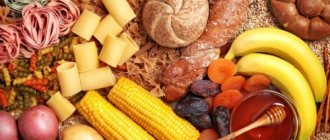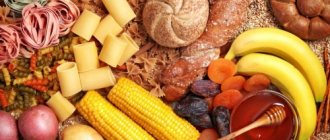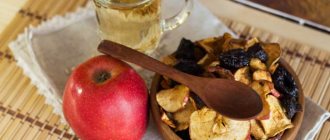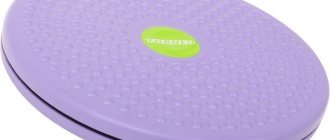Do you dream of getting rid of the 15 kilograms of excess fat that are preventing you from living? Great! Find out how to lose weight without hair loss, sagging skin and unsightly stretch marks on your already perfect body.
Author: Kristina Lobanovskaya, doctor, practicing nutritionist Article updated: 11/10/2020
What to do if an important event is coming up, during which you want to be at your best, but extra pounds are preventing you from doing so? Many women have experienced this at least once in their lives. Then extreme weight loss comes into play. And the less time remains until the cherished date, the more radical the weight loss methods. But how to get rid of extra pounds without harming yourself? After all, as a result of too risky pursuit of harmony, you can end up in a hospital bed.
So, you critically assessed your own reflection in the mirror and decided to get rid of the extra 15 kg. However, first, answer yourself a few questions:
- Is 15 kg really overweight, confirmed by a specialist? Or is this a goal you made up? After all, if your initial weight is 60 kg, then suddenly losing weight by 15 kg just to get closer to Kate Moss’s parameters can be very unsafe for your health. Therefore, before you start losing weight, consult, for example, a nutritionist.
- What time do you have? The more time you have available to lose weight, the safer it is for your health.
- If you decide to go on a strict diet, are you aware of all the health risks? After all, hair loss, sagging skin, stretch marks and peeling nails are far from the most unpleasant consequences that sudden weight loss often leads to.
- Are you mentally prepared for the process of losing weight and changing yourself? After all, the kilos you lose may not bring the satisfaction you think about now.
- Are you ready to maintain the results achieved by eating right and leading a healthy lifestyle? It is important to answer this question immediately and honestly, because if you go on a strict diet and then return to poor nutrition, the weight you lost will return with additional kilograms.
General rules of nutrition for weight loss
- Eat 3-5 times a day. Serving size should be no more than 300 g.
- If you feel very hungry, drink 200 ml of kefir (1% fat), or eat one apple.
- You should avoid sugar, salt, flour, fatty meat and fish, sauces, and semi-finished products.
- You can eat chicken breast, low-fat fish (hake, pollock), fresh fruits and vegetables, dairy products (fat content should not exceed 5%).
- Food needs to be steamed, baked or boiled.
- You can drink green tea (with lemon if desired) or natural coffee without additives.
- Drink at least 2 liters of still water per day.
If you are aiming to lose weight forever, get ready for the fact that you will have to spend time and change your habits (start eating right, playing sports). After all, 15 kg that have accumulated for 5 years cannot be lost irrevocably in 5 days. Only by changing your habits (by starting to eat right and devoting time to physical exercise) will you become slim and at the same time maintain your health.
How to lose 15 kg in 1 or 2 weeks
Losing 15 kg in less than a month is not an easy task. Firstly, it all depends on your initial weight. The more it exceeds the optimal figure, the easier it will be to get rid of 15 kg. Secondly, this is a colossal burden on the body. After all, the excess accumulated over a long period of time, and sudden weight loss switches the body into the “fight for survival” mode. There are six main points to consider if you want to lose 15 kg in a few weeks:
- You will have to go on a very strict diet. This can have an extremely negative impact on the functioning of the cardiovascular and endocrine systems, the gastrointestinal tract (especially if you have chronic diseases) and metabolic processes.
- Under conditions of such dietary stress, the metabolic process in the body will slow down, from which in the future you risk starting to gain weight even from harmless vegetables.
- You will lose weight not due to the fat layer, but due to the muscles. The result of such weight loss is sagging skin.
- Physical activity is something you can’t do without during emergency weight loss. Otherwise, the desired effect will not be achieved. However, a low-calorie diet combined with strenuous exercise can cause exhaustion of the body. Therefore, do not overdo it with physical activity. Exercise as much as possible. If for one reason or another you cannot do exercises, try to walk as much as possible.
- The maximum rate of loss of fat reserves per day is 200 g. This result can be achieved by fasting or consuming no more than 500 calories per day. Thus, you can lose 1 kg of fat in a week.
- A loss of no more than 3 kg per month is considered harmless to the body. If we are talking about 15 kg in one or several weeks, then such weight loss will have an extremely negative impact on your health.
There are many recipes that promise to lose 15 kg in a minimum period of time - three, two, or even one week. However, before you try these methods on yourself, remember: everything is individual and depends solely on the characteristics of your body. After all, even if someone managed to get rid of 15 kg of excess weight in such a short period of time, it is not a fact that the result of the same diet will not disappoint you.
In 1 week
Method number 1: fasting
Fasting is a very extreme way to lose weight and requires proper preparation. If you decide to fast, you can only do this under the supervision of a specialist. The higher your initial weight, the more kilograms you will lose in a week. However, do not forget that if you fail during fasting, or return to poor nutrition after it, you risk not only regaining the previous kilos, but also ending up in the hospital with diseases of the gastrointestinal tract.
Read more: Fasting for weight loss
Method number 2: consume 500 calories per day
Distribute your meals as you wish, but consume no more than 500 calories per day. For example, for breakfast you can eat 200 g of low-fat cottage cheese, for lunch - 1 boiled egg and 1 piece of bread, for dinner - 200 ml of kefir 2.5% fat. During this period, you should not consume salt, sugar, or fatty foods. Be sure to drink 2 liters of clean water without gas per day.
Diet “Minus 15 kg per week”
Requires strict adherence for effective weight loss. Products cannot be replaced or included in the diet at your own discretion.
Menu for 1st – 2nd day:
- 250 ml tomato juice, 20 g rye bread.
- 1 liter of kefir (1.5% fat).
3rd – 4th day:
- Breakfast: natural coffee with milk (1.5% fat), 1 teaspoon of honey.
- Lunch: 200 g chicken broth, 2 tablespoons of green peas.
- Dinner: 150 g boiled chicken breast.
5th – 6th day:
- Breakfast: 2 apples or 2 oranges.
- Lunch: 250 g vegetable soup.
- Afternoon snack: 2 apples or 2 oranges.
- Dinner: 200 g salad (cucumbers + tomatoes + green peas + lemon juice).
Day 7:
Extend 1 liter of kefir (2.5% fat) for the whole day. Don't forget to drink clean water without gas. You are allowed to drink green tea - no more than three cups.
This diet will be useful to you if you are looking for ways to lose 15 kg in 10 days. On days 8 and 9 you should eat this way:
- Breakfast: 1 grapefruit.
- Lunch: 200 g low-fat chicken broth.
- Afternoon snack: 2 apples, green tea with lemon.
- Dinner: 200 g boiled chicken breast.
10th day:
- Breakfast: natural coffee, 150 g of cottage cheese (5% fat).
- Lunch: 200 ml vegetable soup, 100 g grated carrots.
- Afternoon snack: 200 ml tomato juice.
- Dinner: 150 g boiled chicken breast, 50 g green peas.
In 2 weeks
You can lose 15 kg in two weeks by following a liquid diet. Its result also depends on the initial weight. The principle of the diet is to consume only liquid foods (kefir, fruit and vegetable juices, low-fat broth), which effectively cleanses the intestines. However, before you start, you need to consult a nutritionist. If you have no contraindications, a specialist will help you develop an optimal diet taking into account the individual characteristics of your body.
Preparatory stage (three days)
You need to drink at least 2 liters of clean water without gas per day. It is recommended to drink green tea without sugar (with lemon). Consumption of natural coffee without additives is allowed - no more than 2 cups per day.
If for some reason you cannot consume dairy products (kefir, milk), replace them with vegetable broth, fruit or vegetable juices or liquid porridge with water without adding salt and oil.
Menu for the 1st day:
- Breakfast: 200 g of buckwheat porridge without sugar in milk (1.5% fat).
- Second breakfast: 200 ml of kefir (2.5% fat).
- Lunch: 200 g vegetable soup, 70 g boiled chicken breast.
- Afternoon snack: 1 apple.
- Dinner: 200 g of stewed vegetables.
Day 2:
- Breakfast: 200 g of oatmeal without sugar with milk (1.5% fat).
- Second breakfast: 200 ml of milk (2.5% fat).
- Lunch: 150 g baked chicken breast, 2 cucumbers.
- Afternoon snack: 50 g walnuts, 1 apple.
- Dinner: 200 g low-fat cottage cheese.
3rd day:
- Breakfast: 200 g of liquid mashed potatoes (without butter, milk and salt).
- Second breakfast: 200 ml of kefir (1.5% fat).
- Lunch: 200 g grated carrots + 2 teaspoons honey.
- Afternoon snack: 250 ml kefir (2.5% fat).
- Dinner: 150 g of liquid mashed potatoes (without salt, milk and butter), 200 ml of kefir (1.5%).
Main period (14 days)
You need to develop a meal plan and strictly follow it. Skipping meals can negatively affect the effect of the diet.
For 14 days you should eat this way:
- 8:00 – 250 g of oatmeal broth (boil 100 g of oatmeal in 0.5 liters of water, then strain);
- 9:00 – 250 g vegetable broth;
- 10:00 – 250 ml of hot boiled water (can be with lemon juice);
- 11:00 – 200 ml of any fruit juice;
- 12:00 – 200 ml kefir (1.5% fat);
- 13:00 – 250 ml of hot boiled water;
- 14:00 – 250 ml of berry decoction (you can drink a decoction of dried fruits);
- 15:00 – 200 g of low-fat chicken broth;
- 16:00 – 200 ml of hot boiled water;
- 17:00 – 200 ml of hot boiled water;
- 18:00 – 250 ml of fruit or vegetable juice (3/4 juice and 1/4 water);
- 19:00 – 250 g vegetable broth;
- 20:00 - 200 ml of hot boiled water;
- 21:00 - 200 ml of warm milk (2.5% fat) or kefir (2.5% fat).
Final stage (three days)
It is necessary to exit the diet correctly even if you decide to end it earlier than planned.
1st day:
- Breakfast: 200 g of liquid mashed potatoes with water.
- Second breakfast: 200 ml of mint tea with lemon.
- Lunch: 200 g grated carrots + 2 teaspoons honey.
- Afternoon snack: 250 ml kefir (2.5% fat).
- Dinner: 200 g low-fat cottage cheese.
- Before going to bed, drink 200 ml of kefir (1% fat).
Day 2:
- Breakfast: 250 g of any baked vegetables.
- Second breakfast: 200 ml of kefir (2.5% fat).
- Lunch: 200 g of buckwheat porridge in water without oil, any fresh herbs.
- Afternoon snack: 50 g walnuts.
- Dinner: 200 g of boiled rice without oil and salt.
- Before going to bed, drink 250 ml of kefir (1% fat).
3rd day:
- Breakfast: 200 g of oatmeal with milk (2.5% fat) + 1 teaspoon of honey.
- Second breakfast: 200 ml of milk (2.5% fat).
- Lunch: 250 g vegetable soup, 70 g baked beef.
- Afternoon snack: 200 ml kefir (2.5% fat), 1 loaf of bread.
- Dinner: 150 g cottage cheese (3% fat), 1 apple.
- Before bed: 200 ml of kefir (1% fat).
Read more: Liquid diet
How to choose the right diet
You decided to pull yourself together and get rid of the extra pounds that are preventing you from feeling comfortable. A decision is something that will help you move along the intended path. But what if there are many ways to lose weight, but you can’t decide?
First of all, you need to pay attention to these important factors:
- Contraindications
This is one of the main points, since before you start losing weight you should definitely take into account the state of your body. Don’t forget about any food intolerances, allergies, or diseases.
- Well-planned diet
If you have been eating foods that are familiar to your body for many years, and now suddenly give them up, unpleasant consequences will await you. It is best to eliminate ingredients gradually, without stressing the body. Try to cook for yourself and buy only those foods that will benefit you.
Don't try to cut calories right away. Inconsistency of proteins, carbohydrates and fats in the diet can lead to metabolic disorders, exhaustion and problems with the gastrointestinal tract (gastrointestinal tract).
- Useful habits
Try to compensate unhealthy foods with healthy ones. Let there always be a basket of fruit on your table, and a bottle of clean water in all rooms. This way you will supply your body with vitamins, maintain water balance and teach yourself discipline.
- Individual approach
Each person needs an individual approach. Let these words become a motto for you. A protein diet will help someone lose weight, while another person will not notice much effect from it. Don't despair and don't stop trying. Only with the help of experience can you choose the option that will help you.
Diet 15 days – 15 kg
This is a very effective diet that can be followed for less than 15 days, and, if necessary, more, depending on the result obtained. Its principle is the alternation of fasting, protein and carbohydrate days. The sequence of days and the composition of the menu are prohibited from changing.
Menu for days 1 – 2 (fasting)
Hungry days. On the first day you can drink 1 liter of kefir (1.5%), on the second - 1 liter of milk (1.5%) or tomato juice.
3rd – 4th days (protein)
- Breakfast: 1 boiled egg, 30 g of rye bread, tea.
- Lunch: 200 g of mushroom broth, 150 g of boiled chicken breast.
- Afternoon snack: 150 g of stewed vegetables.
- Dinner: 1 boiled egg, 100 g low-fat cheese, 200 ml kefir (2.5% fat).
5th – 6th days (carbohydrate)
- Breakfast: 2 apples or 2 kiwis, tea with a teaspoon of honey.
- Lunch: 150 g of stewed vegetables, 150 g of vegetable soup.
- Afternoon snack: 2 cucumbers, 1 bread.
- Dinner: 150 g of salad (fresh cucumbers, tomatoes, green peas + olive oil).
7th - 8th days (fasting)
Repeat days 1 – 2 (kefir, or milk, or tomato juice).
9th – 10th days (protein).
11th – 12th days (carbohydrate).
13th – 14th days (unloading).
15th day
- Breakfast: 150 g of stewed vegetables.
- Lunch: 150 g low-fat cottage cheese, 150 ml kefir (2.5% fat).
- Afternoon snack: 1 loaf of bread, tea with a teaspoon of honey.
- Dinner: 200 g boiled chicken breast, 100 ml tomato juice.
Diet for 30 days
At the very beginning of losing weight, it is necessary to cleanse the intestines with a laxative or an enema. You cannot change the order and menu of the 30-day “Minus 15 kg” diet.
Prohibited: sweets, flour and alcoholic drinks.
This is the case when you need to start on Monday. At first, you may feel worse. The diet is scheduled for several days, after which the menu is repeated for the following days.
The first day of the diet should be fasting. You are allowed to drink up to a liter of milk and, if you really want to eat, some black bread.
Day two is protein day.
- Breakfast: black bread with butter, coffee.
- Lunch: boiled meat, broth, cheese.
- Dinner: several boiled eggs.
Day three is fruit and vegetable day.
- Breakfast: any 2 fruits.
- Lunch: vegetable soup.
- Dinner: vegetable salad.
Day four is mixed.
- Breakfast - coffee, cheese.
- Lunch – chicken, egg, bread.
- Dinner – kefir, fruit.
The fifth day will be a copy of the first, the sixth – the second, etc. This alternation occurs throughout the month. It is quite possible to lose weight using the diets described, but each of them will negatively affect your health, since fasting, one way or another, poses a significant risk.
In 20 days
The twenty-day diet is based on the same principle as the 15-day diet. Days 15–16 are protein days, days 17–18 are carbohydrate days, days 19–20 are fasting. On days 15–18, you can drink 100 ml of milk (2.5% fat) with a teaspoon of honey.
Rating of food delivery for weight loss
Delivery of food with calculated calorie content, ready-made diets. No more cooking and counting calories!
Go
Go
In 3 weeks
It is necessary to drink at least 2 liters of still water per day. It is recommended to drink green tea with lemon. It is allowed to consume 1 teaspoon of honey per day.
Menu for week 1
Daily
- Breakfast: 1 boiled chicken egg, 1 orange.
- Lunch: 200 g low-fat cottage cheese, 1 grapefruit.
- Dinner: 200 g boiled chicken breast, 100 g stewed vegetables (except potatoes).
Week 2
Daily
- Breakfast: 200 g of boiled rice or buckwheat without salt, butter and milk.
- Lunch: 200 g vegetable broth.
- Dinner: 150 g low-fat cottage cheese, 1 apple.
Week 3
Daily
- Breakfast: 200 g of salad (tomatoes + cucumbers + olive oil + lemon juice), 1 bread.
- Lunch: 200 g vegetable stew (any vegetables).
- Dinner: 150 g low-fat cottage cheese, 1 grapefruit.
Physical exercise
If you choose fasting, then physical exercise during this period is contraindicated, as the body will be too weakened. With mono-diets, two- and three-week weight loss, you can perform a 20-minute set of exercises (stretching, squats, side bends, running) twice a day. Physical activity will significantly enhance the effect of any diet. The main rule is to monitor your well-being. If you feel bouts of nausea, weakness, or heart pain, stop exercising or reduce the intensity of exercise.
Contraindications to rapid weight loss
Rapid weight loss leads to various health problems. There are the following categories of people for whom diets are contraindicated:
- Children and teenagers. Their body is not yet strong, so it is difficult for them to tolerate strict dietary restrictions.
- Pregnant and lactating women. When carrying a child and during lactation, the body is subjected to a lot of stress. The introduction of dietary restrictions at this time can lead to fetal rejection and cessation of milk production.
- The presence of diseases that are associated with the endocrine, immune, genitourinary, digestive, and cardiovascular systems.
People who have undergone surgery or recovered from a serious illness should postpone losing weight for several months. If the body, which has not yet fully recovered, is subjected to new stress, complications and relapses may occur.
Per month
To lose 15 kg in a month, give up fast carbohydrates, processed and fatty foods, sugar and salt. Eat every 3 hours, but eat no more than 300 g of food at one time. The basic rule is that every 2 days you need to do a fasting day on buckwheat or kefir. These days you need to eat either 500 g of buckwheat porridge in water without salt and oil, or drink 1 liter of kefir 2.5% fat per day.
Menu for week 1
Day 1:
- Breakfast: 200 g of oatmeal with water.
- Second breakfast: 1 apple.
- Lunch: 200 g vegetable soup.
- Afternoon snack: 1 loaf of bread, 100 g of boiled chicken breast.
- Dinner: 100 g low-fat cottage cheese.
Day 2:
- Breakfast: 100 g of baked vegetables.
- Second breakfast: 1 orange.
- Lunch: 150 g baked chicken breast.
- Afternoon snack: 1 loaf of bread, 50 g low-fat cottage cheese.
- Dinner: 200 ml kefir (1.5% fat), 100 g boiled shrimp.
Day 3:
Fasting day.
Day 4:
- Breakfast: 200 buckwheat porridge.
- Second breakfast: 1 cucumber, 1 bread.
- Lunch: 150 g vegetable stew (cabbage + onions + carrots).
- Afternoon snack: 1 apple.
- Dinner: 200 ml kefir (2.5% fat), 150 g of any baked vegetables.
Day 5:
- Breakfast: 200 g of boiled rice in water without salt and oil.
- Second breakfast: 100 g of stewed cabbage.
- Lunch: 200 g vegetable broth.
- Afternoon snack: 1 loaf of bread, 1 apple.
- Dinner: 250 ml kefir (2.5% fat).
Day 6:
Fasting day.
Day 7:
- Breakfast: 200 g low-fat cottage cheese.
- Second breakfast: 1 apple.
- Lunch: 200 g vegetable broth.
- Afternoon snack: 100 g boiled hake.
- Dinner: 200 ml kefir (1% fat), 100 g stewed cabbage.
Week 2
Day 1:
- Breakfast: 1 banana.
- Second breakfast: 1 apple.
- Lunch: 200 ml low-fat chicken broth, 1 piece of bread.
- Afternoon snack: 100 g cottage cheese (3% fat).
- Dinner: 200 g of baked vegetables.
Day 2:
Fasting day.
Day 3:
- Breakfast: 200 g of mashed potatoes without salt and butter.
- Second breakfast: 100 g low-fat cottage cheese.
- Lunch: 150 g vegetable soup.
- Afternoon snack: 200 ml kefir (1% fat), 1 orange.
- Dinner: 100 g baked hake.
Day 4:
- Breakfast: 200 g of oatmeal with milk (1.5% fat).
- Second breakfast: 1 apple.
- Lunch: 2 cucumbers, 1 bread, 100 g low-fat cottage cheese.
- Afternoon snack: 1 grapefruit, 1 loaf of bread.
- Dinner: 150 g of boiled mussels.
Day 5:
Fasting day.
Day 6:
- Breakfast: 200 g of boiled rice without additives.
- Second breakfast: 1 baked apple.
- Lunch: 1 loaf of bread, 200 ml of milk (1% fat).
- Afternoon snack: 200 g of any stewed vegetables.
- Dinner: 250 ml kefir (1.5% fat).
Day 7:
- Breakfast: 200 ml milk (2.5% fat), 1 banana.
- Second breakfast: 2 breads, 70 g of buckwheat porridge with water.
- Lunch: 200 g vegetable soup.
- Afternoon snack: 100 g low-fat cottage cheese.
- Dinner: 250 ml kefir (1.5% fat).
Week 3
Day 1:
Fasting day.
Day 2:
- Breakfast: 200 g of buckwheat porridge with water.
- Second breakfast: 2 breads.
- Lunch: 100 g baked pollock, 1 cucumber.
- Afternoon snack: 2 loaves of bread, 50 g of cottage cheese (3% fat).
- Dinner: 200 g of stewed vegetables (except potatoes).
Day 3:
- Breakfast: 200 g of oatmeal with milk (1.5% fat).
- Second breakfast: 1 apple.
- Lunch: 200 g low-fat chicken broth.
- Afternoon snack: 1 grapefruit, 1 loaf of bread.
- Dinner: 100 g boiled mussels.
Day 4:
Fasting day.
Day 5:
- Breakfast: 150 g low-fat cottage cheese.
- Second breakfast: 1 banana.
- Lunch: 200 g low-fat chicken broth.
- Afternoon snack: 2 apples.
- Dinner: 100 g baked hake.
Day 6:
- Breakfast: 200 g of oatmeal with water.
- Second breakfast: 1 orange.
- Lunch: 100 g baked hake, 2 cucumbers.
- Afternoon snack: 2 loaves of bread, 200 ml kefir (2.5% fat).
- Dinner: 200 g stewed cabbage.
Day 7:
Fasting day.
Week 4
Day 1:
- Breakfast: 200 g of boiled rice without additives.
- Second breakfast: 1 apple.
- Lunch: 200 g vegetable broth.
- Afternoon snack: 1 orange.
- Dinner: 150 g boiled shrimp.
Day 2:
- Breakfast: 150 g low-fat cottage cheese, 1 loaf of bread.
- Second breakfast: 1 orange.
- Lunch: 200 g stewed cabbage.
- Afternoon snack: 2 loaves of bread, 200 ml milk (2.5% fat).
- Dinner: 150 g boiled chicken breast.
Day 3:
Fasting day.
Day 4:
- Breakfast: 200 g of oatmeal with water.
- Second breakfast: 1 banana.
- Lunch: 100 g vegetable broth.
- Afternoon snack: 200 ml kefir (2.5% fat).
- Dinner: 100 g of boiled mussels, 2 breads.
Day 5:
- Breakfast: 150 g low-fat cottage cheese.
- Second breakfast: 1 grapefruit.
- Lunch: 200 g stewed cabbage.
- Afternoon snack: 2 loaves of bread, 200 ml milk (2.5% fat).
- Dinner: 150 g boiled chicken breast.
Day 6:
Fasting day.
Day 7:
- Breakfast: 200 g low-fat cottage cheese.
- Second breakfast: 2 apples.
- Lunch: 200 g low-fat chicken broth.
- Afternoon snack: 2 loaves of bread, 200 ml kefir (1.5% fat).
- Dinner: 150 g boiled mussels, 1 loaf of bread.
To lose 15 kg in 2 months, eat according to the same pattern, but do fasting days twice a week. You can add beef, cottage cheese 5% fat, natural yogurt and fermented baked milk (no more than 4% fat), chicken eggs (no more than one per day), honey (no more than 1 tablespoon per day), grapes (no more than 200 g) to the diet per day).
What foods to avoid?
Before you lose 15 kg, you should know which foods are strictly prohibited to consume. The following should be excluded from the diet:
- White rice;
- grape;
- salted nuts;
- fruit juice;
- pasta;
- alcohol;
- White bread;
- fatty meats and fish;
- sausages, smoked products;
- white potatoes;
- semi-finished products and fast food;
- dairy and fermented milk products with high fat content (milk, kefir, sour cream, cream);
- vegetable oil;
- tomato paste, ketchup;
- pickles.
You should limit your salt intake, as it retains excess fluid in the body.
Lawyer Diet for 40 days
Sugar, salt, oil and alcohol should be completely eliminated. You can't play sports during this time.
Menu for days 1 – 10
- Day 1: 300 g boiled potatoes
- Day 2: 1 liter of kefir (2.5% fat)
- Day 3: 500 g cottage cheese (7% fat)
- Day 4: 4 boiled eggs
- Day 5: 400 ml milk (2.5% fat)
- Day 6: 800 g boiled chicken breast
- Day 7: 1.5 kg apples
- Day 8: 500 ml kefir (2.5% fat)
- Day 9: 500 g boiled buckwheat
- Day 10: 200 g boiled potatoes
+ 250 g of any fresh vegetables daily
11 – 20 days
- Day 11: 1 liter of kefir (2.5% fat)
- Day 12: 1 kg apples
- Day 13: 500 g cottage cheese (5% fat)
- Day 14: 500 g boiled chicken fillet
- Day 15: 800 g boiled chicken fillet
- Day 16: 1.5 liters of kefir (1.5% fat)
- Day 17: 1 kg of grated carrots
- Day 18: 1.5 kg apples
- Day 19: 500 g boiled buckwheat
- Day 20: 5 boiled eggs
+ 1 liter of still water
21 – 30 days
- Day 21: 1 liter of kefir (2.5% fat)
- Day 22: 500 g apples
- Day 23: 400 g cottage cheese (5% fat)
- Day 24: 5 boiled eggs
- Day 25: 1 liter of kefir (2.5% fat)
- Day 26: 250 g cottage cheese (7% fat)
- Day 27: 1 kg of grated carrots
- Day 28: 4 bananas
- Day 29: 500 g boiled buckwheat
- Day 30: 5 boiled eggs
+ 1 liter of still water
31 – 40 days
- Day 31: 1 liter of kefir (2.5% fat)
- Day 32: 1 kg apples
- Day 33: 500 g cottage cheese (5% fat)
- Day 34: 500 g boiled veal
- Day 35: 800 g boiled chicken breast
- Day 36: 1.5 liters of kefir (1.5% fat)
- Day 37: 1 kg of grated carrots
- Day 38: 1.5 kg apples
- Day 39: 500 g boiled buckwheat
- Day 40: 6 boiled eggs
+ 1 liter of still water
For two weeks
You can get rid of excess 15 kg in a couple of weeks with the help of a liquid diet. Again, the final result will depend on the starting weight. The principle of this diet is to consume only liquids that help cleanse the intestines. Low-fat broth, juices from vegetables and fruits, and kefir are suitable for this purpose. Just before starting this diet, it is recommended to visit a nutritionist so that he can identify the presence or absence of contraindications and develop a suitable diet.
Preparation stage (3 days)
Every day you need to drink at least two liters of still water, unsweetened green tea (permissible with lemon), or a couple of cups of coffee.
Not everyone can drink milk and kefir, so instead of these drinks you can drink vegetable and fruit juice, vegetable broth, or liquid, not salty or oily porridge, boiled in water. Below we will offer a recommended three-day menu, where the following designations are available: breakfast - one, snack - two, lunch - three, afternoon snack - four, dinner - five.
| First day | 1: buckwheat boiled in milk (1.5%) (no sugar needed) 2: 2.5% kefir (half a glass) 3: vegetable soup (200 g), boiled chicken breast (70 g) 4: one apple 5: Stewed vegetables (200 g) |
| Second day | 1: oatmeal cooked with 1.5% milk (no sugar needed) 2: milk 2.5% (200 ml) 3: oven-baked chicken breast (150 g), a couple of cucumbers 4: apples and nuts (walnuts are best, 50 g) 5: low-fat cottage cheese (200 g) |
| The third day | 1: mashed potatoes not salted or oily (200 g) 2: kefir 1.5% fat (half a glass) 3: grated carrots (200 g), a couple of teaspoons of honey 4: kefir 2.5% - 1 glass 5: mashed potatoes not salted and not oily (150 g), kefir 1.5% (200 ml) |
Main course (14 days)
For two weeks you need to eat every hour, and do not skip meals so that the effectiveness of the diet does not decrease. Below you will find an hourly menu for 14 days.
| 8 ocloc'k | oatmeal broth, boiled in half a liter of water from 100 g of flakes and strained |
| 9 o'clock | vegetable broth |
| 10 hours | hot water with lemon juice (if desired) |
| 11 o'clock | juice from any fruit – 200 ml |
| 12 hours | 1.5% kefir – 200 ml |
| 13 hours | hot water – 250 ml |
| 14 hours | decoction of berries or dried fruits – 250 ml |
| 15 hours | low-fat chicken broth – 200 ml |
| 16 hours | hot water – 200 ml |
| 17 o'clock | hot water – 200 ml |
| 18 hours | vegetable and fruit juice, diluted with water in a ratio of ¾ to ¼ - 250 ml |
| 19 hours | vegetable broth – 250 ml |
| 20 hours | hot water – 200 ml |
| 21 o'clock | Warmed 2.5% milk or kefir – 200 ml |
Completion stage (3 days)
This diet requires the right exit, regardless of whether it was sustained to the end or ended prematurely. It will also take three days, the menu for them is proposed below. Designations in the table: breakfast - one, snack - two, lunch - three, afternoon snack - four, dinner - five, what you can eat before bed - six.
| First day | 1: thin mashed potatoes (200 g) 2: tea with mint leaves and lemon (glass) 3: grated carrots (200 g), a couple of teaspoons of honey 4: 2.5% kefir (250 ml) 5: zero-fat cottage cheese (200 g) 6: a glass of 1% kefir |
| Second day | 1: vegetables baked in the oven (any, 250 g) 2: kefir 2.5% (200 ml) 3: buckwheat, boiled in water (do not add oil), fresh greens 4: walnut kernels (50 g) 5: boiled rice (do not add salt and oil) 6: 1% kefir (250 ml) |
| The third day | 1: oatmeal boiled in 2.5% milk (200 g), a small spoon of honey 2: 2.5% milk (200 ml) 3: vegetable soup (250 g), oven-baked beef (70 g) 4: 2.5% kefir, bread 5: 3% cottage cheese (150 g) and one apple 6: a glass of 1% kefir |
In 3 months
To lose 15 kg in three months, you don’t have to go on a strict diet and exhaust yourself with workouts. It is enough to consume no more than 1300 calories per day and devote at least an hour to training every day. You can choose the optimal set of exercises for yourself, or alternate exercises in the gym with, for example, running or dancing. Thus, you will lose 5 kg per month without compromising your health.
Home delivery of products
Rating of services in St. Petersburg based on customer reviews. Discounts and promotions.
Go
Go
Kefir diet
Another popular diet is kefir diet. This is one of the oldest and most controversial diets.
It will not become controversial for you if you follow the recommendations:
- Stick to the kefir regime for a week;
- Next, eliminate dairy products and follow a balanced diet for a week;
- Alternate between the kefir diet and a healthy diet.
A prerequisite for kefir is that it contains up to 2.8 g of protein and no more than 2 g of fat. Divide the number of doses into 5 times per glass. Do not forget to maintain equal intervals between kefir doses.
In addition to kefir, low-calorie foods are allowed:
- Fruits and vegetables (raw);
- Dietary meat (breast or turkey);
- Cottage cheese;
- Baked potato.
In 4 months
Start with a simple but effective technique: keep a notepad or install a special application on your smartphone. Record everything you ate and drank and how much. Don't forget to enter your physical activity data. For example, 20 minutes of running, 30 squats and climbing from the first floor to the third on foot. This will make it easier for you to figure out the number of calories you eat and burn. In addition, plan your diet for the week ahead. If you exceed the permissible daily caloric intake level, the next day you will have to reduce your caloric intake by 200 kcal. And don't forget about sports. Even if you can’t afford to go to the gym to lose weight under the supervision of a trainer, it doesn’t matter. Walk as much as possible (for example, go on long walks on the weekend, taking with you 1 - 1.5 liters of still water with lemon juice), do physical exercises at home, dance. The effect will not be long in coming.
To lose 15 kg in 4 months, you need to lose about 3,700 kg every month. This rate of weight loss will not cause harm if you weigh at least 70 kg. To successfully get rid of extra pounds, follow these rules:
- Be sure to have breakfast. Breakfast should be hearty and balanced. For example, eat 200 g of oatmeal with milk (1.5% fat) + 15 g of raisins, 1 banana.
- Eat hot liquid food: soups, borscht. When cooking, do not make the meat broth too fatty.
- For dinner, eat meat, fish, mushrooms, and fresh vegetable salads.
- Boil, bake, steam food.
- Each serving of food should be no more than 300 g. But watch the calorie content of the food. For example, it is not recommended to eat more than 100 g of any nuts per day.
- Try to completely give up sugar. If this does not work, then it is better to consume products that contain it in the first half of the day (before 13:00).
- Harmful sweets (shortbread cookies, biscuits, milk chocolate, condensed milk, etc.) are contraindicated for you. You need to replace them with healthy ones: marshmallows (without chocolate), marmalade, marshmallows, jelly.
- If you really want something sweet at the wrong time, brush your teeth or drink natural coffee with cinnamon and lemon. This will suppress the craving for it.
- Don't starve or overeat.
- Organize fasting days twice a week: on kefir, buckwheat, vegetables or fruits. This is a prerequisite for losing weight.
Diet based on calorie counting
Before starting the diet, you calculate your daily caloric intake. You can count calories using a phone app or manually, writing it down in a notepad. There are also food diaries for convenience.
The calorie threshold is determined taking into account age, weight, height and physical activity.
The downside of the diet is the constant counting. If you know that you will forget to enter data, then it is better to choose another weight loss system.
The advantage is the constant control of what you eat and the discipline it develops. It has been proven that when you keep a careful record of your food, you are much more motivated not to eat and not to break good statistics. This method is also suitable for people who are used to being accountable to themselves or loved ones.
You can calculate how many calories you need to consume daily using the calculator on our website.
It is recommended to add physical activity to this type of diet.
For convenience, purchase a home scale to correctly determine your food portions.
For half a year
You need to lose 2.5 kg monthly to lose 15 kg in six months. To do this, you don't have to starve or exhaust yourself in the gym. It is enough to eat small meals (5-6 times a day), consume no more than 1500 calories per day and perform a set of exercises every other day: 50 squats, 50 abdominal exercises, 100 side bends, 50 side swings with each leg. Try to walk as much as possible. It is recommended to give up sugar, alcohol and flour products. Once a week, arrange fasting days on oatmeal, buckwheat, kefir, fruits or vegetables (you can stew or bake).
Two month
To say goodbye to 15 kilograms in 2 months and maintain the new weight, you will have to work hard. To obtain such a result, you will need a whole range of methods - diet correction, physical activity, psychological work on yourself and consultation with a nutritionist.
You need to prepare in advance for a two-month diet marathon. Lack of preparation comes with health risks. Before you radically change your diet and lifestyle, you need to remove toxins from your body, put your metabolism in order, and treat existing diseases.
If you have already prepared for the diet properly, follow these recommendations for 2 months:
- Forget about flour and sweets.
- Limit your use of animal fats as much as possible.
- Reduce your daily caloric intake to 1200 kcal.
- Deload weekly.
- Increase the number of meals to 5-6 times a day and reduce the size of portions. You can have your last meal 2 hours before going to bed, no later.
- Eat fiber daily—at least 30 grams.
- Walk every day. The duration of one walk should be at least 40 minutes.
- Visit the gym or pool three times a week.
- Take vitamin and mineral complexes.
Aids
Drugs
There is a huge selection of drugs that promise effective weight loss without additional effort. Some of them are more effective, others less, and still others do not give the expected results at all. The action of almost all drugs for weight loss is based on the following principles:
- diuretic and laxative effect;
- removing excess fluid from the body;
- appetite suppression;
- acceleration of metabolism.
If you still decide to use weight loss medications, first consult with a specialist. Next, carefully study the instructions, contraindications and effects of the drug. Remember that the combination of a strict diet, sports activity and auxiliary medications is a huge burden on the body. Because due to a strict diet and even minimal physical activity, you lose a lot of fluid, and pills with a diuretic effect aggravate this effect. In addition, water balance is quickly restored and, accordingly, weight returns. And your task is to get rid of excess fat. Therefore, if you decide to use drugs for weight loss, it is better to do this with a more gentle diet. This is the only way to gradually reduce the fat layer.
Appetite suppression
If you find it difficult to cope with the feeling of hunger, you can use folk remedies to suppress your appetite. Drink ginger tea or herbal infusions (linden, nettle, corn silk, celery). Also use some tricks to trick your appetite: brush your teeth, take a bath, do breathing exercises.
Anti-cellulite massagers and creams
If you do not have too sensitive skin and are not allergic to the components of anti-cellulite products, then they will not cause you any harm. Regular use of the cream and massager will improve the condition of the skin and prevent it from sagging during rapid weight loss.
Wraps
The wrapping procedure involves removing moisture through the pores of the skin. Thus, the process of removing waste and toxins from the body accelerates, and you lose volume. However, do not forget that it is not recommended to do body wraps more than twice a week, as this will disrupt the water-salt balance. And for people who suffer from diseases of the cardiovascular system, wraps are contraindicated.
Spelling a word
First, it is necessary to determine the part of speech and the rule to follow when writing. Kilogram is a second declension noun, masculine.
Secondly, you should select and pose a question to the noun in order to determine the case. (What? – kilograms. Genitive case). According to spelling, masculine nouns of the second declension, in the plural in the genitive case, are written with the ending –ov.
But we remember that we are talking about the Russian language and there is certainly an exception to the rule. The noun kilogram in the genitive case in the plural has two spelling options: with and without the ending -ov. Both spellings are correct.
But what about the hypothesis regarding the use of words in oral and written speech? This assumption still exists today. But this remains a hypothesis, not a rule.
Whether to write kilogram or kilograms depends only on the noun with which ending follows the word “kilogram”. If after the noun “kilogram” a noun with the ending –ov is used, then the word “kilogram” itself does not have an ending.
Conversely, if the companion noun is used without an ending, then the ending of the genitive plural “passes” to the word “kilogram”. For example, 5 kilograms of carrots. But, 20 kilograms of watermelons.
Example sentences
- We collected several kilograms of strawberries from our home plantation.
- To prepare an autumn salad, I need to buy 10 kilograms of eggplant.
- How many kilograms of apricots are needed for 9 jars of compote?
- Do you need many kilograms of tomatoes to make ketchup at home?
- Returning from his last business trip, Sergei brought 18 kilograms of bananas.
Reviews and results of losing weight (with video)
Irina Dyachenko, 25 years old, Kirovograd. Weight change: from 75 kg to 62 kg
“A year ago I decided to lose weight before my sister’s wedding. I wanted to surprise everyone with my slimness. I had three months to transform myself. At first I counted calories. I consumed 1000 – 1100 kcal per day. I ate mostly oatmeal, natural yogurt, chicken breast and vegetable broth. I hardly did any sports, but sometimes I had to walk a lot. I lasted this way for a month, thanks to which I lost 6 kg. Then I decided to eat 1,500 calories a day and added more dairy products to my diet. At the same time, I signed up for dances, which I attended 5 times a week. Thanks to this, I lost another 7 kg. I'm very pleased with the result! I felt great at the wedding, I enjoyed looking through the photos. I’m keeping the weight off for now, but my goal is to lose another 5 kg.”
Galina Samoilenko, 26 years old, Vinnitsa. Weight change: from 80 kg to 64 kg
“I have always been prone to being overweight, so in my youth I tried all sorts of diets. Before school graduation, I lost 9 kg in three weeks (from 70 kg to 61 kg). Then I ate only 1 boiled egg, 1 apple, 200 g of chicken breast and 1 orange per day. I drank a lot of water and green tea. She looked good at prom. After some time, everything reset came back. During my student years, there were several more attempts to quickly lose weight. I sat either on kefir, then on vegetables, then on buckwheat, or even ate only one chocolate bar a day, but at the same time I drank a lot of coffee. Using these methods, I lost about five kg in a week, but then they quickly returned. After giving birth, I realized that I would not achieve success using these methods. I tried the Advocaat diet, thanks to which I lost 14 kg. Now I’m eating right, taking time to exercise and continuing to lose weight.”
Anna Gurova, 23 years old, Kyiv. Weight change: from 70 to 58
“I was losing weight for my graduation ceremony. At the request “lose 15 kg in a month,” I found a diet on the Internet, read the reviews and decided to try it. At first I was very hungry. I even broke down a few times. But then my body got used to this diet and I even had the strength to run in the evenings. In addition, I did 50 squats daily. If you wanted something sweet, you drank green tea with lemon and one teaspoon of honey. So I lost 12 kg in a month. Now I eat right and carefully count calories so that the weight doesn’t come back.”
Is active training necessary and is it possible to lose weight without it?
You can do without running or other cardio exercise, limiting yourself to light walks. But although you can lose weight without even exercising, moderate exercise is still needed. Without them, the body will burn muscle instead of storing fat. It is possible that you will lose 10–15 kg or more, but the tummy will still remain.
Start with three basic exercises that you can do at home. Anyone can handle these:
- Squat while holding the back of a chair or window sill with your hands.
- Do push-ups from the windowsill or from the sofa. If it’s unusual or difficult, do push-ups on your knees - this will lighten the load.
- Bend over with light weights, holding 2-3 kg dumbbells or a 2-5 liter water bottle.
For each exercise, you need a warm-up approach of 15 repetitions, and then another 2-3 working sets of 10-15 repetitions. If this is your first time, do a warm-up and 1 working approach. The main thing is that the last 1-2 repetitions in each approach are given with considerable difficulty - this will be more effective.
If the exercises seem too simple, try an increased load:
- Squat with or without dumbbells.
- Do push-ups on the floor - just like that or with additional weights. You can wear a backpack with something heavy: dumbbells or a bottle of water.
- Perform inclines with a kettlebell or dumbbells.
Choose the optimal weight: start with the minimum and increase from session to session so that the load is noticeable.
Reviews from doctors and specialists (with video)
Andrey Nikolaenko, nutritionist, Kyiv
“You don’t even need to be an expert to know that losing 15 kg in a week is impossible. At least in a healthy way. After all, the extra kilos have been accumulating for a long time, so no matter what the body weight, the body is adapted to it. Accordingly, it is impossible to get rid of excess weight in a few days. And short-term diets are designed to remove fluid from their body, which can cause dehydration. Proper weight loss takes time. If you want to get rid of 15 kg and so that this weight never returns to you, change your eating habits, eliminate junk food from your diet, eat smaller meals and move more. The optimal period for losing weight by 15 kg is one year.”
A week
There are a large number of recipes on how to lose 15 kg in a week. But before you start testing these diets on yourself, you should remember one simple rule. The result of any nutritional system is strictly individual and directly depends on the characteristics of your body. It is necessary to take into account the so-called starting weight, the presence of chronic diseases, and the state of the endocrine system. Everything listed is different for each of us. Therefore, if someone managed to lose fifteen extra pounds in 7 days thanks to a certain diet, there is no guarantee that you will be able to repeat such a feat. And, nevertheless, if the doctor allows it, why not try it.
For weight loss to be truly successful, strict adherence to the diet is required. Replacing foods or supplementing the diet with something is unacceptable. But you are allowed to drink green tea. True, its quantity should not exceed 3 cups. We definitely drink clean still water.
| Days | Meals | What do we eat |
| 1 and 2 | All day | A liter of low-fat kefir with tomato juice (250 ml) and a slice of whole grain bread (20 g). |
| 3 and 4 | Having breakfast | A cup of coffee with milk and natural honey (1 tsp). |
| Let's have lunch | Chicken broth (200 g) with green peas (2 tbsp.). | |
| Let's have dinner | Boiled chicken breast (150 g). | |
| 5 and 6 | Having breakfast | A couple of apples or oranges. |
| Let's have lunch | Vegetable soup (250 g). | |
| Having an afternoon snack | A couple of apples or oranges. | |
| Let's have dinner | Salad of cucumbers, tomatoes and green peas, sprinkled with lemon juice (200 g). | |
| 7 | All day | A liter of low-fat kefir. |











